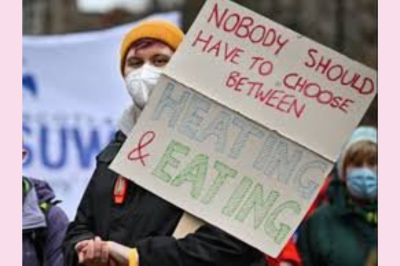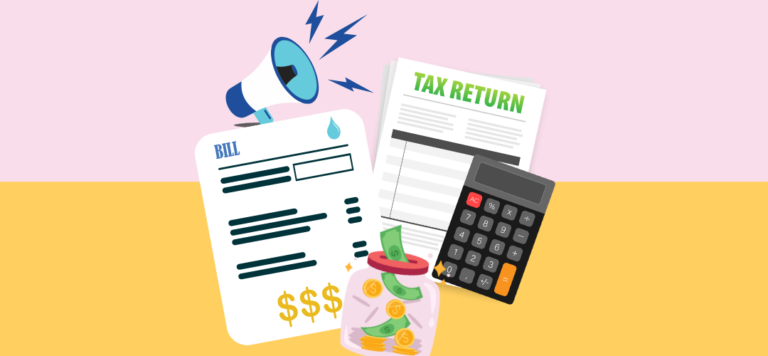Australia’s a rich country, so why are we so poor?
People living, working and studying in Australia are contending with rising costs across the board. From housing and energy bills to transport and food. We know that’s not news to you.
In a country where we can ensure that everyone has enough to get by, more and more people are falling through the cracks.
The people who earn the least are most affected, which in turn contributes to growing financial inequality. A recent survey conducted by the Australian Council of Trade Unions (ACTU) found that 1 in 4 people have resorted to skipping meals. And more than half of the 3000 people surveyed had reduced spending on essential items. Another survey found that 64% of menstruating gen zs are struggling to afford period products.
Our wages are going backwards while corporate profits go through the roof – including multinational fossil fuel corporations who are making billions of dollars while blaming high energy prices on the war in Ukraine. Most of these companies have paid no corporate tax in Australia for nearly ten years.
This isn’t a cost of living crisis, it’s a cost of living scandal.

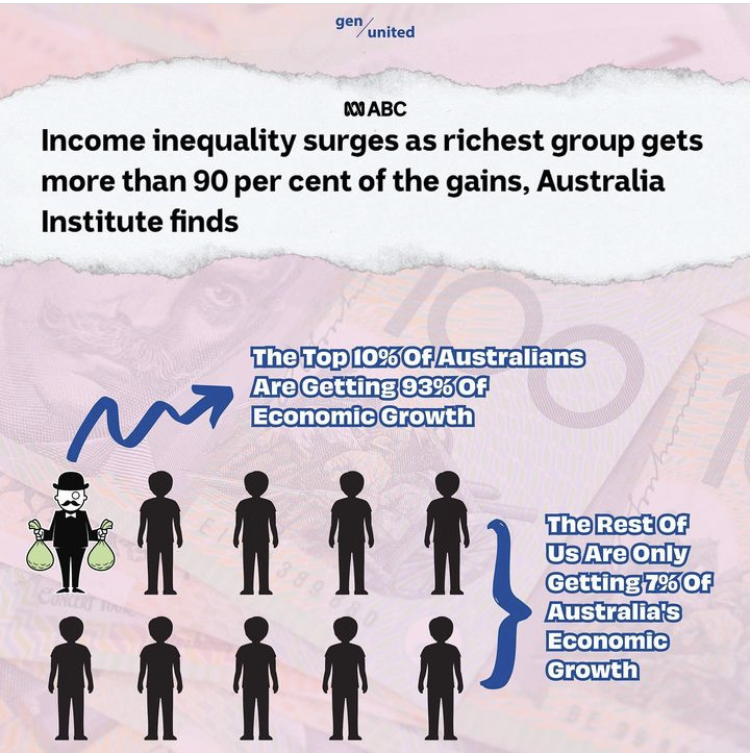
What’s the difference between a crisis and a scandal and why does it matter?
Calling the current state of affairs a crisis suggests inevitability and blamelessness – that this terrible thing simply happened.
However, what’s happening right now is not an accident. It’s the result of a system designed to leave low-paid workers, students and job seekers balancing ever tighter budgets whilst energy producers declare huge profits, landlords put up rent and large corporations hand out millions to shareholders.
A decade of Liberal/National Coalition government policies saw record wage stagnation and rising job insecurity while the top end of town made record profits off the backs of workers.
The recent announcement of minimum and award wage increases of 8.6% and 5.75% respectively is a step in the right direction but will not go far enough to repair the damage. It’s important to note that these increases didn’t happen because of the kindness and generosity of businesses or the Fair Work Commission, but due to intense pressure from workers around the country standing together in our unions to demand better.
A change in government and therefore government priorities will go some way to helping, assuming the Albanese government continues to push for reforms to help working people.
What should be done?
These are some of the things we reckon should be done asap to provide relief for those who need it most. This is by no means an exhaustive list. Let us know what’s on your list.
Business groups like to push the line that wage increases will lead to higher inflation, but according to Greg Jericho, who is Policy Director at the Centre for Future Work, a Guardian columnist and prolific tweeter,
“Wage increases only become inflationary when they increase by more than inflation plus productivity. At the moment, they’re certainly not.”
The 2023/24 increase to minimum and Award wages is a start, but wages but continue to increase beyond rate of inflation so that people on low incomes can get ahead rather than just keeping our heads above water.
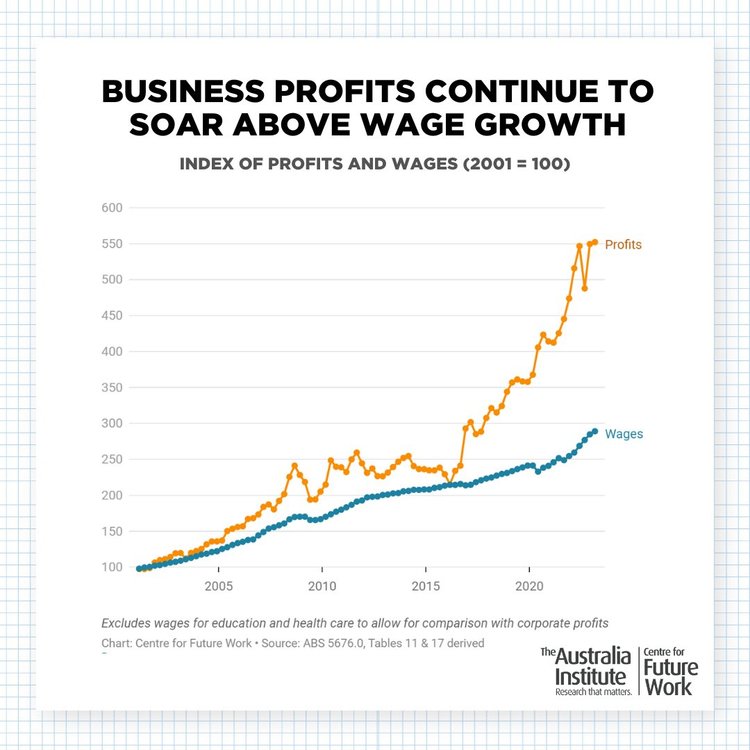
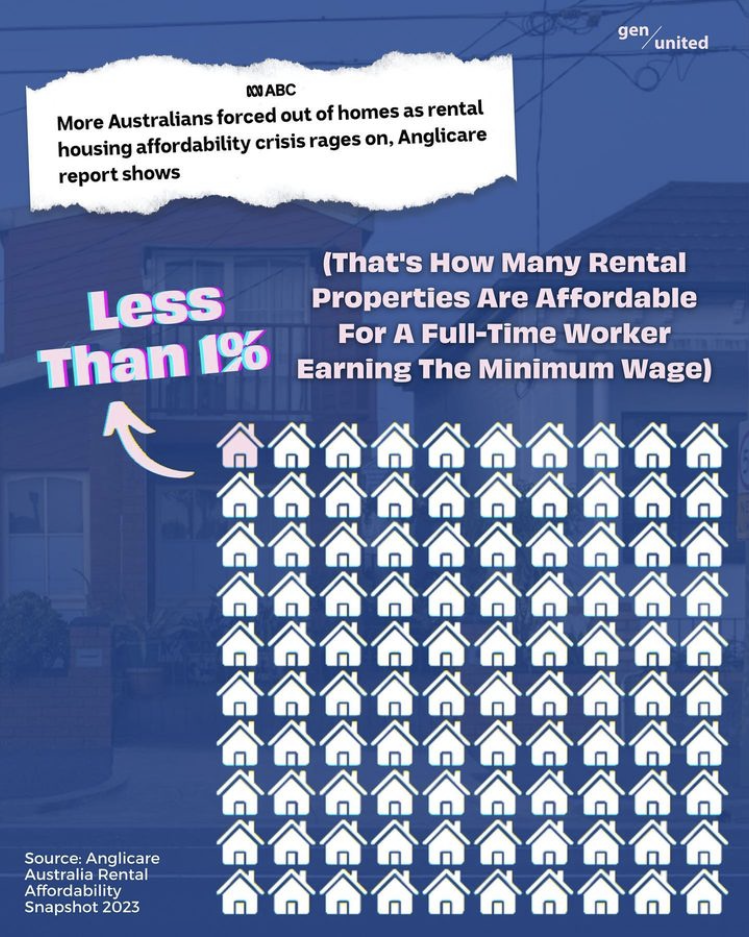
Sort out housing
Here we need a suite of reforms – more public housing, better rights for renters and closing tax loopholes that make it easier for the rich to buy investment properties while young people get shut out of the housing market. If we stop propping up investors with tax-payer handouts, that money can go into building more public housing – win win!
Further industrial relations reforms
Our industrial relations laws have been stacked against workers. Besides Fair Work Commission mandated wage increases, better laws for working people can also lead to higher wages. The Albanese Labor government has already made some good progress with industrial relations reform. They’ve introduced multi-employer bargaining which will lead to increased pay and conditions for more workers.
Pay secrecy clauses have been abolished so coworkers can compare how much they’re getting paid and organise to ensure everyone’s getting paid fairly.
We’d also like to see a concerted effort to reduce the prevalence of insecure work. About 80% of jobs in the hospitality industry, for example, are casual. This directly correlates to the prevalence of wage theft and low wages in the sector.
Raise the rate
This is a no-brainer. People who rely on JobSeeker, Youth Allowance, Austudy, Abstudy, Special Benefit and Parenting Payment are forced to live in poverty. The Australian Council of Social Services (ACOSS) campaign calls for a permanent increase to at least $76 a day – the same as the Age Pension.
Investment in government-owned renewables
We must move away from dirty and dangerous fossil fuels. With the rise of clean renewables, now is the time for government to take back control of our power. The Victorian Andrews government is leading the charge here with the revival of the State Electricity Commission (SEC). Having state-owned energy providers protect residents from the greedy price-gouging by energy retailers.
Governments can do anything they want, but not everything. It’s about priorities.
We want our governments to prioritise people over corporations, to invest in social services and clean renewables. We want forward-thinking governments who are planning for the next 10, 20 or 50 years, not just for how they can win the next election.
It’s critical that we stand together and take collective action to ensure a safe, prosperous future for everyone living in Australia.

